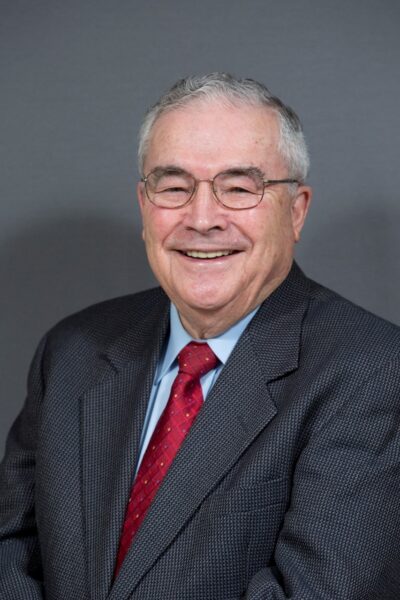Delbert E. Day

Delbert E. Day is Curators’ Distinguished Professor Emeritus of Ceramic Engineering at the Missouri University of Science and Technology (Missouri S&T), Rolla, MO. Delbert earned his BS degree in ceramic engineering at what was then called the Missouri School of Mines and Metallurgy and his PhD in ceramic technology from the Pennsylvania State University, under the supervision of Prof. Guy Rindone.
Following his PhD, Delbert returned to Missouri S&T where for the next 50 years he taught classes in the ceramic engineering program and he and his students performed ground-breaking research on a variety of glass-related topics, including the mixed-alkali effect, nucleation and crystallization phenomena, iron phosphate glasses, and glasses for biomedical applications. The latter work included the development of glass microspheres for radio-embolism treatment of liver cancer. In 1985 Delbert started Mo-Sci, Inc., a company in Rolla, to produce those first microspheres and that company has now grown to become a worldwide supplier of specialty glasses for healthcare applications and other engineering products. Over the course of his career, Delbert and his students have published over 350 peer-reviewed articles and hold at least 45 US patents. Delbert is a member of the National Academy of Engineers and a fellow of the National Academy of Inventors. He is a Distinguished Life Member and Past-President of the American Ceramic Society. Delbert is a 1998 recipient of the GOMD George W. Morey Award for glass research, the Phoenix Award for the Glass Person of the Year (2010), and the International Commission on Glass President’s Award (2013), among his many other honors.
Delbert lives in Rolla, with his daughter Lynne nearby. His great-grandson begins his S&T engineering education in August 2025. Delbert’s Day Family Foundation continues its philanthropic mission to serve the Rolla-area community and Missouri S&T.
Presented to Dr. Delbert Day in recognition of his success as an inventor of various bio-glasses, nano-spheres and wound healing materials resulting in over 50 US and foreign patents as well as leading to the creation of Mo-Sci; his impactful contributions to the global glass science and technology communities including book editorship and serving on numerous committees and panels; his prolific mentorship of many important contributors to the field; his own significant list of more than 400 publications; and his leadership and support to the American Ceramic Society across roles and committees.